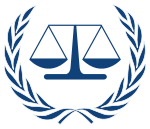Government Grants
Business Grants
Home Owner Programs
Federal Programs
About Us
Buenos Aires English for Journalists and Disinformation
Creation of a curriculum for English language students of intermediate and advanced ability to study both English and journalism, based on the UNESCO publication Journalism, 'Fake News' and Disinformation:
A Handbook for Journalism Education and Training (“Curriculum”).
I.
STATEMENT
OF WORK The Curriculum has 7 Units and includes these topics:
Truth, Trust and Journalism:
Why it Matters Thinking about "Information Disorder":
Formats of Misinformation, Disinformation and Mal-information News Industry Transformation:
Digital Technology, Social Platforms and the Spread of Misinformation and Disinformation Combatting Disinformation and Misinformation Through Media and Information Literacy (MIL) Fact-Checking 101 Social Media Verification:
Assessing Sources and Visual Content Combatting Online Abuse:
When Journalists and Their Sources are Targeted The applicant shall convert the UNESCO materials to a curriculum for English language students, for the benefit of primary Spanish speaking journalists, academics and editors, Spanish speakers, with intermediate and advanced proficiency in English who seek to improve their language skills and their general understanding of the risks of disinformation, and the need for news organizations to counter it collaboratively with its readership, based on U. S. models of journalism experience, to explore how traditional and digital media outlets can take proactive roles in combatting disinformation.
Additional information can be found in the following link:
https://en.unesco.org/fightfakenews II.
PROGRAM SPECIFIC GUIDELINES Each activity in the Curriculum, from reading passages to interactive activities to discussion topics, should address two learning levels:
Intermediate and Advanced.
The Curriculum should be divided in 2 modules of 10 classes of three hours of classtime, 1 hour of online lab per class, and three hours of homework for each of the 20 classes.
A combination of classroom instruction and technology in a flexible approach to learning that recognizes the benefits of delivering some training and assessment online but also uses other modes to make up a complete training program which can improve learning outcomes.
Grantee’s responsibilities:
Design and plan a Curriculum including 20 classes on disinformation in English designed for Journalists.
Provide a welcome orientation to serve as an introduction to the program and its objectives as well as an introduction to the host country.
Provide a closing session to summarize program activities and plan for their future as alumni.
Present creative and effective ways to address program themes, for both program participants and their peers to amplify program impact.
Design and implement an evaluation plan that assesses the program’s impact, such as a post-course distribution list or social media group.
The grantee through this grant will design the program that will later might be conducted by a different third-party institution to be decided by the U. S. Embassy’s Public Affairs Section in Argentina.
The free press is under a conflagration of pressures in Argentina as in much of the world, and its ability to keep supporting democracy will be determined by its capability to navigate those pressures.
These challenges include the onslaught of unreliable information in the age of social media, the economic strain of the shift from print journalism, and the rise of heated anti-press rhetoric.
This program will present a unique opportunity to help media outlets to understand the implications of these changes for journalists, including how they distinguish themselves, build trust, acquire new skills, verify information and push back against misinformation.
At the same time, the program will give journalists a key tool to help them do a better job.
In a Spanish-speaking country, improving English language skills helps journalists communicate with interlocutors abroad (when traveling to cover any story or event), and gives them access to more sources of information and databases.
A Handbook for Journalism Education and Training (“Curriculum”).
I.
STATEMENT
OF WORK The Curriculum has 7 Units and includes these topics:
Truth, Trust and Journalism:
Why it Matters Thinking about "Information Disorder":
Formats of Misinformation, Disinformation and Mal-information News Industry Transformation:
Digital Technology, Social Platforms and the Spread of Misinformation and Disinformation Combatting Disinformation and Misinformation Through Media and Information Literacy (MIL) Fact-Checking 101 Social Media Verification:
Assessing Sources and Visual Content Combatting Online Abuse:
When Journalists and Their Sources are Targeted The applicant shall convert the UNESCO materials to a curriculum for English language students, for the benefit of primary Spanish speaking journalists, academics and editors, Spanish speakers, with intermediate and advanced proficiency in English who seek to improve their language skills and their general understanding of the risks of disinformation, and the need for news organizations to counter it collaboratively with its readership, based on U. S. models of journalism experience, to explore how traditional and digital media outlets can take proactive roles in combatting disinformation.
Additional information can be found in the following link:
https://en.unesco.org/fightfakenews II.
PROGRAM SPECIFIC GUIDELINES Each activity in the Curriculum, from reading passages to interactive activities to discussion topics, should address two learning levels:
Intermediate and Advanced.
The Curriculum should be divided in 2 modules of 10 classes of three hours of classtime, 1 hour of online lab per class, and three hours of homework for each of the 20 classes.
A combination of classroom instruction and technology in a flexible approach to learning that recognizes the benefits of delivering some training and assessment online but also uses other modes to make up a complete training program which can improve learning outcomes.
Grantee’s responsibilities:
Design and plan a Curriculum including 20 classes on disinformation in English designed for Journalists.
Provide a welcome orientation to serve as an introduction to the program and its objectives as well as an introduction to the host country.
Provide a closing session to summarize program activities and plan for their future as alumni.
Present creative and effective ways to address program themes, for both program participants and their peers to amplify program impact.
Design and implement an evaluation plan that assesses the program’s impact, such as a post-course distribution list or social media group.
The grantee through this grant will design the program that will later might be conducted by a different third-party institution to be decided by the U. S. Embassy’s Public Affairs Section in Argentina.
The free press is under a conflagration of pressures in Argentina as in much of the world, and its ability to keep supporting democracy will be determined by its capability to navigate those pressures.
These challenges include the onslaught of unreliable information in the age of social media, the economic strain of the shift from print journalism, and the rise of heated anti-press rhetoric.
This program will present a unique opportunity to help media outlets to understand the implications of these changes for journalists, including how they distinguish themselves, build trust, acquire new skills, verify information and push back against misinformation.
At the same time, the program will give journalists a key tool to help them do a better job.
In a Spanish-speaking country, improving English language skills helps journalists communicate with interlocutors abroad (when traveling to cover any story or event), and gives them access to more sources of information and databases.
Who's Eligible
Relevant Nonprofit Program Categories
Obtain Full Opportunity Text:
http://grants.nih.gov/grants/guide/pa-files/PAR-20-081.html
Additional Information of Eligibility:
Accredited public institutions of higher education; private institutions of higher education; curriculum developers; educators of journalism and university systems in the United States or Argentina.
Full Opportunity Web Address:
See full document attached
Contact:
Agency Email Description:
Media Office
Agency Email:
Date Posted:
2020-01-14
Application Due Date:
Archive Date:
2020-04-12
Social Entrepreneurship
Spotlight
Calgary Social Enterprise Offers High-Tech Services by People with Autism

Meticulon, a project of Autism Calgary Association in partnership with the federal government and the Sinneave Family Foundation, operates as a social enterprise that renders high-tech services provided by people with autism, leveraging their natural abilities at requiring attention to detail, repetition, and sequencing.

